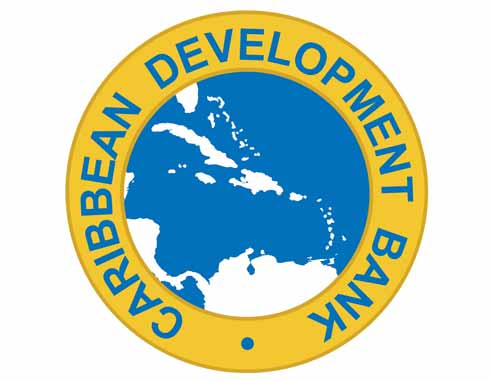BRIDGETOWN, BARBADOS, February 7, 2019:– Saint Lucia is seeking more help from the Caribbean Development Bank (CDB) in 2019 and has requested assistance from the regional institution in six areas.
This was disclosed Thursday in Barbados at a regional press conference hosted at the bank’s Bridgetown headquarters.
The press conference, an annual affair hosted at the bank’s conference room at its Wildey headquarters complex in The City, heard CDB President Warren Smith, Director of Economics Justin Ram and Director of Projects Daniel Best take turns to report on and review the bank’s performance in their respective areas of responsibility.
They gave regional updates and national assessments relating to the CDB’s member-states — which span the entire Caribbean, including all CARICOM and OECS member-states — at the same time making projection for the future based on past and present experiences.
The directors indicated the government of Saint Lucia has requested CDB assistance in six specific areas: tourism, agriculture, infrastructure, citizen security education and healthcare.
In 2019, the CDB also expects to complete appraisal of a US$12 million project ‘for the upgrade of the Sir Arthur Lewis Community College and to meet Special Education Needs in St. Lucia.’
St Lucia has also approached the CDB for assistance — and is now benefitting from — a US $5 million project ‘to support the establishment of an Implementation and Delivery Mechanism’.
Addressing regional journalists invited and flown to Bridgetown alongside Barbadian reporters in a session that was also live-streamed across the region and the world, Dr Smith and other top CDB officials also reported on the bank’s performance in 2018 as compared to 2017 and offered many projections for 2019.
They indicated the bank had lent some US $350 million to member-states in 2018, with disbursements reflecting a 20% increase over the previous year, in a situation where ‘low growth, high debt and high unemployment are the three main challenges’ affecting the Caribbean region today.
The directors pointed out that in 2017 alone, hurricane damage across the region amounted to over US 100 million, while 13 borrowing member-states increased their debt in the period under review.
Put alongside many other national and regional factors, the CDB’s leadership is also calling on regional governments to do more to take advantage of new and unexplored opportunities.
With one in every four Caribbean youth out of work, the CDB President also called on the private sector to “play a lead role in creating opportunities for growth”.
To assist in creating such opportunities, the CDB launched on Thursday evening a Cultural and Creative Industries Innovation Fund (CCIIF), a US $2 million project aimed at upgrading the region’s creative cultural products, from Steelband and Carnival, to Calypso, Reggae and Art.
But in order for countries to better benefit from CDB assistance, the directors also strongly advise that member-states should strengthen their project implementation capacity levels nationally.
With implementation rates on public projects across the region measured at 20%, the CDB is also now training over 2,000 public sector persons across member-states to strengthen national capacity.
The CDB has also allocated more for consultancies, the majority of which are regional.
But while concerned about improving the implementation rate across the region, President Smith is not so worried about what some might consider a low implementation rate.
Indeed, some CDB officials also told reporters of instances when World Bank colleagues would indicate they wished their implementation rate was like that of the CDB.
Looking ahead, the CDB President says there will have to be a combination of good governance and better implementation structures in place at national levels, while the regional banking institution will continue to innovate in its effort to search for and find meaningful solutions to regional problems to be shared with Caribbean nations, institutions and people.
He also said that, approaching its Golden Jubilee (50 years), the CDB will also resort to more use of appropriate and advanced technology to maintain its position as a leading development partner.
He also pledged the CDB will continue to increase paying attention to issues central to Caribbean survival, from Climate Resilience to Alternative Energy, to ensure the regional institution continues to serve the interests of Caribbean countries and people, irrespective of size or contribution.





![Attendees at the UHC logo and website launch [Photo credit: GOSL]](https://thevoiceslu.com/wp-content/uploads/2026/02/Attendees-at-the-UHC-logo-and-website-launch-380x250.jpg)






![Remnants of an alleged drug boat blown up in a lethal strike by the U.S. military last week surfaced off Canouan on Saturday [Photo credit : St Vincent Times]](https://thevoiceslu.com/wp-content/uploads/2026/02/Remnants-of-an-alleged-drug-boat-blown-up-380x250.jpg)

